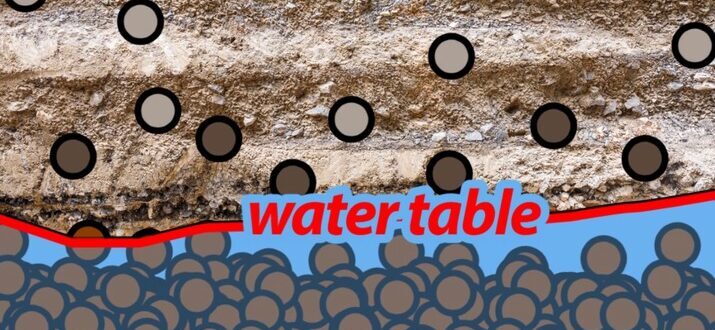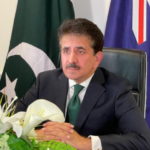By Yasrab Iftikhar
LAHORE, Mar 22 (APP): More than 70% of domestic water needs are met from groundwater resources in Pakistan but this rich natural source of freshwater is often poorly mapped and managed which is being depleted at alarming rate.
If this water resource was not properly managed, this might led the country to the most water-stressed situation in the region in the coming two decades or so. The water scarcity is caused due to multiple factors including climate change, population explosion, mismanagement, primitive irrigation practices, obsolete water transmission infrastructure and lack of reservoirs.
Hence, water demand and supply relationship is expected to be greatly influenced by the population growth. The shortage of water resources to meet industrial and domestic demands of a rapidly growing population is likely to impact irrigation water supply which would affect the sustainability of agriculture.
The groundwater management is a complex phenomenon which requires multidimensional actions, policies and management strategies. It should be well-integrated with mainstream water management projects and policies.
Assistant Professor Dr Muhammad Arif Watto, University of Agriculture Faisalabad said that the recent climate change trends and soaring population compounded with rising food demands and improved living standards had substantially increased pressure on water resources.
Although groundwater resources have played a key role in agricultural production, unimpeded pumping of groundwater aquifers, however, it has led to the rapid depletion of water table which had many negative environmental and economic consequences.
Talking about ways to conserve groundwater, Muhammad Arif Watto said that groundwater must be monitored in quantity and quality over time to learn about the behavior and condition of aquifers and identify potential negative changes such as over-abstraction, reduced recharge, and pollution.
Early detection of problems can be extremely cost-effective, allowing mitigation measures to be implemented before serious deterioration of the resource occurs. Moreover, the data collection should be made accessible to everyone to raise awareness among the general public regarding its conservation and sustainable use.
The resilient groundwater monitoring model will help determine sustainable groundwater potential, prepare groundwater budgets for sub-basins, canal commands and assess the saline groundwater interface’s lateral and vertical movement.
Watto said that Pakistan requires management systems and effective policies which execute groundwater conservation and monitoring. The groundwater policy should be based on legal status and ownership (public or private), as well as factors such as water users, interrelated surface water features, and land uses in aquifer recharge areas.
The Assistant Professor said that implementation of groundwater management tools depends on the legal establishment and institutional structures that confer authority for their use and enforcement. He, however, said that all management is not carried out by the government.
Communities or groundwater consumers may independently opt to maintain well sitting and groundwater abstractions. The management tools can help conserve water through vulnerability mapping, developing groundwater protection zones and land use planning.
Moreover, Managed Aquifer Recharge (MAR) approach can be used to allow the replenishment of aquifers to complement storage dams and provide a cost-effective alternative that minimizes evaporation and environmental impacts
He said that trans-boundary aquifers include a natural subsurface path of groundwater flow crossing an international boundary. Heavy abstraction or contamination of the aquifer in one country can significantly impact the other side of the border.
Therefore, coordinating, harmonizing and sharing data through cooperation between neighboring countries is essential in formulating management plans. Such considerations into trans-boundary collaboration generate opportunities for more socially equitable groundwater management.
The authorities concerned must evaluate and recognize the potential role in promoting conservation of groundwater resources in compliance with existing conditions while making optimal use of limited financial resources through targeted initiatives.







